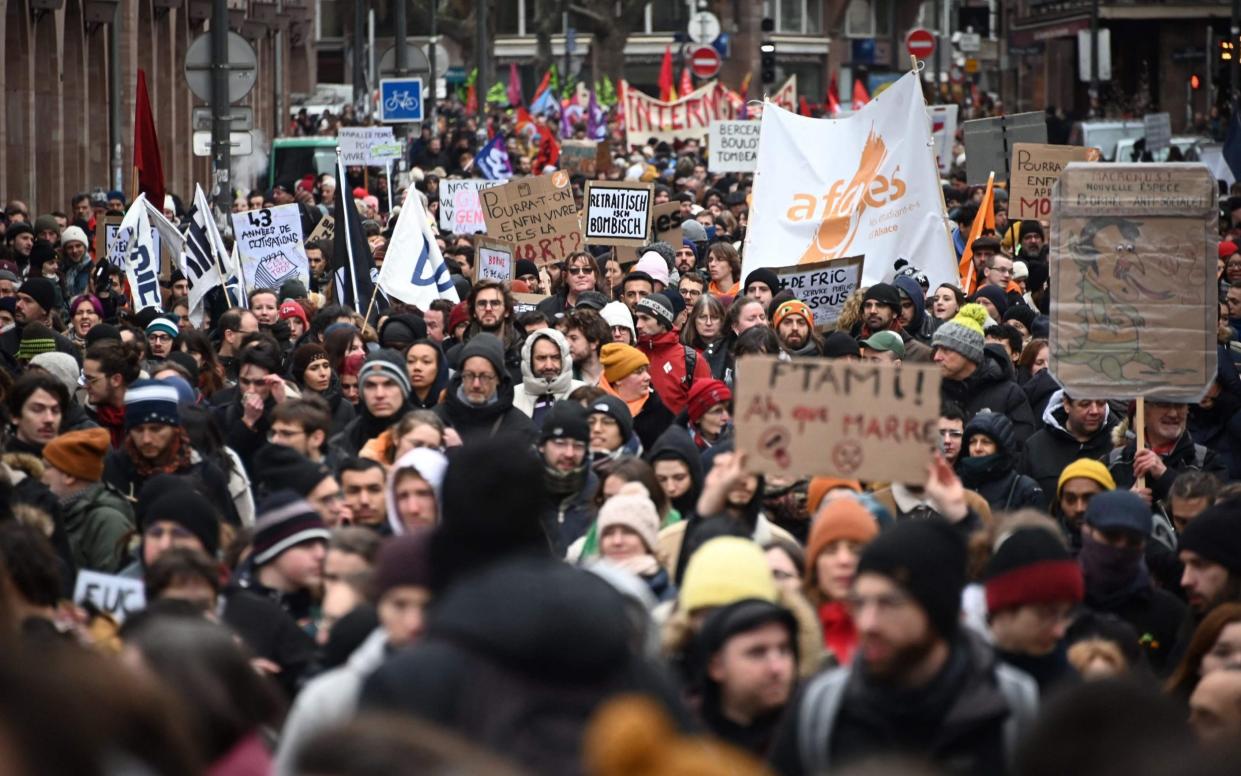How even the French can keep schools open during crippling strikes

While in Britain parents and guardians are being forced to manage their work commitments and plans alongside caring for their children, French schools remain open during strikes that cripple the country.
Thousands of teachers were among 1.3 million people who took to the streets in France on Tuesday to protest against Emmanuel Macron’s pension reform.
The education ministry said that around 26 per cent of teachers in primary and secondary schools were on strike, while unions put the figure at over 50 per cent.
In fact, many schools - in particular primary ones - remained open as under a 2008 law passed by then president Nicolas Sarkozy, primary and elementary establishments must provide a “minimum service” for pupils.
The law, which aimed to keep a bare-bones service in key sectors of daily life, including public transport, was enacted to avoid the country grinding to a halt over Mr Sarkozy’s pension reform of the time.

The changes prompted the former Right-wing president to declare somewhat optimistically: “Now when there’s a strike in France, nobody notices.”
Regarding schools, the law stipulates: “Any child enrolled in a public nursery or elementary school is received during school hours to follow the lessons provided for by the programs.”
The provision of this “service minimum” in the primary sector also depends on how many teachers are on strike. If less than 25 per cent of teachers take action, the school must stay open for children, even if it is not able to run all the usual lessons.
If more than 25 per cent are on strike then the town hall is supposed to organise an alternative way for the children to be looked after during school hours, by gathering them, for example in leisure or sports centres.
Primary teachers wishing to strike must declare their intentions 48 hours in advance to allow schools the time to inform parents and make alternative arrangements.
At that point, the municipality then sends the local education authority a list of people who may be asked to supervise the children so that they can be vetted to see if they are suitable. These can be municipal or social workers and other volunteers with no particular teacher training.

In reality, small towns with large numbers of striking teachers often find arrangements with neighbouring municipalities and send children to classes in these towns. And when a large proportion of teachers are on strike, some primary schools advise parents to keep their children at home if possible.
The minimum service law does not extend to secondary schools and lycées (A’ level colleges), however.
While many secondary school doors remain open, in reality, it is very hard for parents and pupils to know how many - if any - classes will take place as teachers are not obliged to make their intentions clear on whether they intend to strike 48 hours in advance.
Even if schools remain open, some secondary pupils find it impossible to attend classes due to blockades organised by their classmates. Such actions saw 200 secondary schools blocked this week.
Municipal creches were also affected by this week’s strikes and in some areas, several local municipalities made arrangements to use non-striking staff to keep some open.

 Yahoo Movies
Yahoo Movies 
